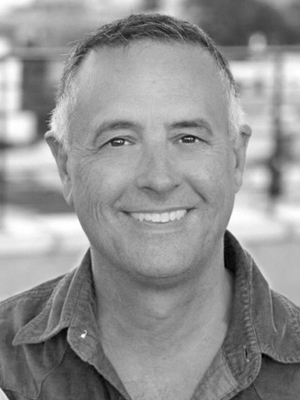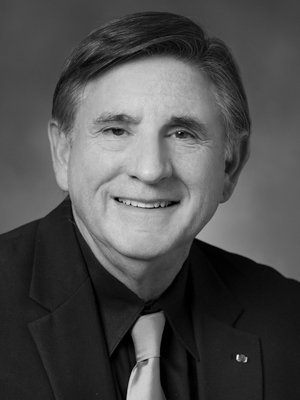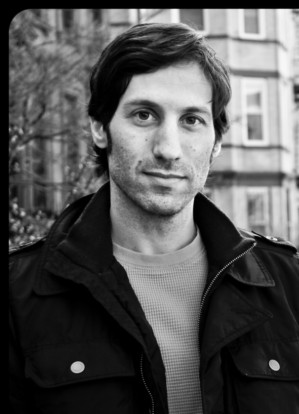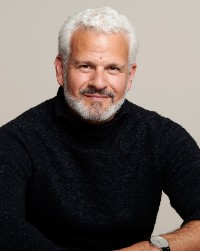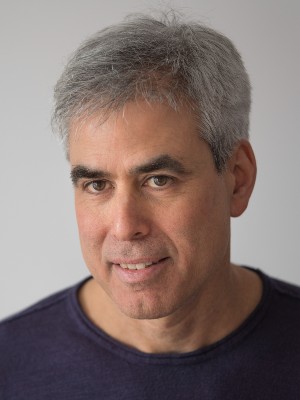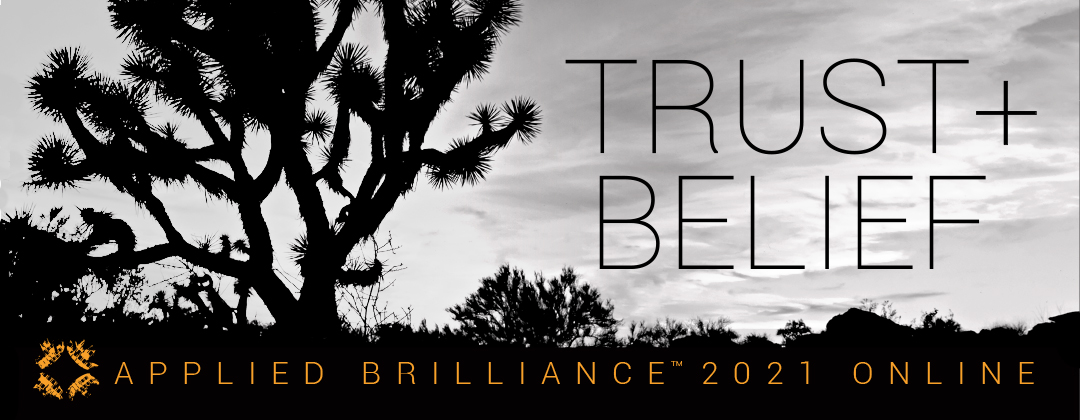
Trust + Belief
Unprecedented times call for unexpected solutions. Join Applied Brilliance, in partnership with Haworth Connect, in a series of timely webcast conversations. The overarching theme of the series is Trust and Belief, with the subtext of managing during the coronavirus crisis. The series is especially relevant today when the world and our communities need to not just get through this time but to come through changed and charged to empower great work for clients, community, friends and family. Each 60-minute conversation includes live Q/A from viewers.
An overview of the failure of institutions and what to do when institutions fail us. Ethan Zuckerman talks about why the pandemic is a signature event in a long, slow decay in trust in institutions that Americans have been experiencing over the years. He reveals why we're likely to see the need for major transformation and replacement of traditional institutions to return to high levels of trust.
Cambridge Analytica paid a data scientist 800k to develop an app called “This is Your Digital Life.” Facebook gave it a platform, and soon Analytica had the data necessary to influence the 2016 US election. So with it died any notion that technology is neutral; compute power just like any other kind is available to the highest bidder and that’s just one example. Predicting sexual preferences, body cameras, and automated license plate readers are others. Privacy jobs and lawsuits flourish but the unintended consequences are happening faster and at scale. All technology requires us to give up our privacy, but how many of us actually benefit? What can we do about the unintended consequences, and how? Join me for a provocative short talk with an open Q&A to discuss what tech companies are attempting to manage these concerns, and how those attempts impact us all.
Something began changing on elite college campuses in 2013 and 2014, as Gen Z (born 1996 and later) arrived. They brought with them much higher rates of anxiety and depression, and higher expectations of protection. Over the next few years, academic norms changed to accommodate Gen Z, in ways that interfered with the traditional mission of universities -- finding and imparting truth. When Gen Z began to graduate, around 2018, and enter the "real world," this dynamic began to play out again, especially in industries that hire from America's elite liberal arts colleges, such as journalism, media, the arts, non-profits, and tech. In this talk I'll elaborate on these claims and lead a discussion to find out if this process is happening in the companies represented by the people in the audience. If so, then we'll discuss what to do to reconcile the legitimate demands of young employees with the realities or business and organizational life.
We are ushering in a new era of experiential medicine. The future of technology as cognitive treatments will change the face of traditional medicine. A fundamental challenge of our global healthcare system is the development and distribution of effective treatments to enhance cognition for those suffering from diverse psychiatric and neurological conditions. Dr. Gazzaley will describe his use of inventive custom-designed, closed-loop video games to achieve cognitive benefits in both healthy individuals and patients. This approach has now yielded the first FDA-cleared digital treatment for ADHD, and the first video game cleared by the FDA as a medical device for any clinical condition. He will also share digitally-delivered interactive experiences with the innovations in machine learning, virtual reality, physiological recordings and non-invasive electrical brain stimulation to enhance cognition.
April Rinne is creator and author of upcoming book, “Flux Mindset: Disciplines to Thrive in Constant Change.” She will present Learning to Thrive in Constant Change. She believes the pace of change has never been as fast as it is today, yet it will likely never again be this slow. (Just let that sink in for a moment.) This was the case before the coronavirus hit, yet the pandemic has been an incredible accelerant. We are truly living in a world in flux. This world of constant and widespread change requires new disciplines to thrive in our professional and personal lives, and to help others do the same. These new disciplines are superpowers, but they don’t manifest in the ways we’re typically led to believe “discipline” works. They are not disciplines of control, but rather disciplines that embrace our "new-now-never normal"... of flux. April holds a J.D. from Harvard Law School, an M.A. in International Business and Finance from The Fletcher School at Tufts University, and a B.A. in International Studies and Italian summa cum laude from Emory University. She is a Fulbright Scholar and studied at Oxford, the Harvard Kennedy School of Government, and the European University Institute. In 2011 the World Economic Forum named her a Young Global Leader. She is also on the list of the world's "50 Leading Female Futurists."
With the shelter in place orders around the country, we conducted our lives through screens at a rate even higher than the already elevated use before the pandemic. While there has been much talk about the addiction of screens, filter bubbles, and other ill effects of the online world, there is little, if any awareness of a larger, more existential effect. In this talk, David Zweig asks: When we live most of our waking hours through a medium (screens), rather than direct experience, What is Real? With entertaining anecdotes, such as the story of newlyweds stranded at a 5-star resort in the Maldives (a #1 most read article Zweig wrote for the New York Times), and a Dutch college student who faked a study abroad trip as an elaborate hoax on social media, threaded with scholarly theory, such as Alfred Korzybski's adage "the map is not the territory" and Baudrillard's simulacra, Zweig will change how you think about being online and challenge the assumptions we make about images equaling reality.
At this point in time, it is impossible to do more than speculate about the long-term psychological and cultural effects of the Covid pandemic. What is clear is that people are living their lives very differently. They may be discovering, as they are forced to do without many things they had taken for granted, that they are not as important as they seemed to be. They may be discovering that as important as freedom of choice is to well being, just as important is security, and they may come out of this trauma willing to give up some of the former for more of the latter. They may be discovering that "I'm from the government, and I'm here to help" are not the most dangerous words in the English language. More dangerous by far is "I'm from the government and you're on your own." They may be discovering that companies need to pay more attention to stakeholders, even at the occasional expense of shareholders. And they may be discovering that connection to other people is much more important than connection to stuff. And so the world we live in when this trauma lifts may be very different from the world we lived in when the trauma started. Or, we may slowly slide back into making the same sorts of mistakes, as individuals and as a society, that we made before. What can we do to make sure that the lessons we are learning in these days of trauma are lessons we will apply after the trauma ends?
Dr. Allan Hamilton is a Harvard-trained brain surgeon who has a life-long interest in how the brain maps out experience. He has spent over a decade in modeling pandemics and trying to assess the emotional and social responses that can arise in such situations. The human brain is a marvel of planning, risk assessment, and trying to execute a strategy to obtain the best possible outcome. But what happens to the brain when it encounters a situation that it has never experienced? The answer: the brain resorts to more primitive emotional reactions because it no longer trusts its own logic. The COVID-19 pandemic has created one of those scenarios for most of us. Dr. Hamilton explains some of the brain mechanisms which take over in such a crisis and how we can learn to recognize them and overcome them.
Based on his research across 70 countries into how people thrive in adversity, Greg shares a system of nine practical and simple behaviors you can adopt for best surviving during the times of COVID-19. Each of these behaviors helps keep you stay up in the desirable executive function of the brain where resiliency, innovation, and human connection (even remotely) most effectively take place. Learn how to best cope and actually find positive opportunities for your own growth and well-being during these unprecedented times.
